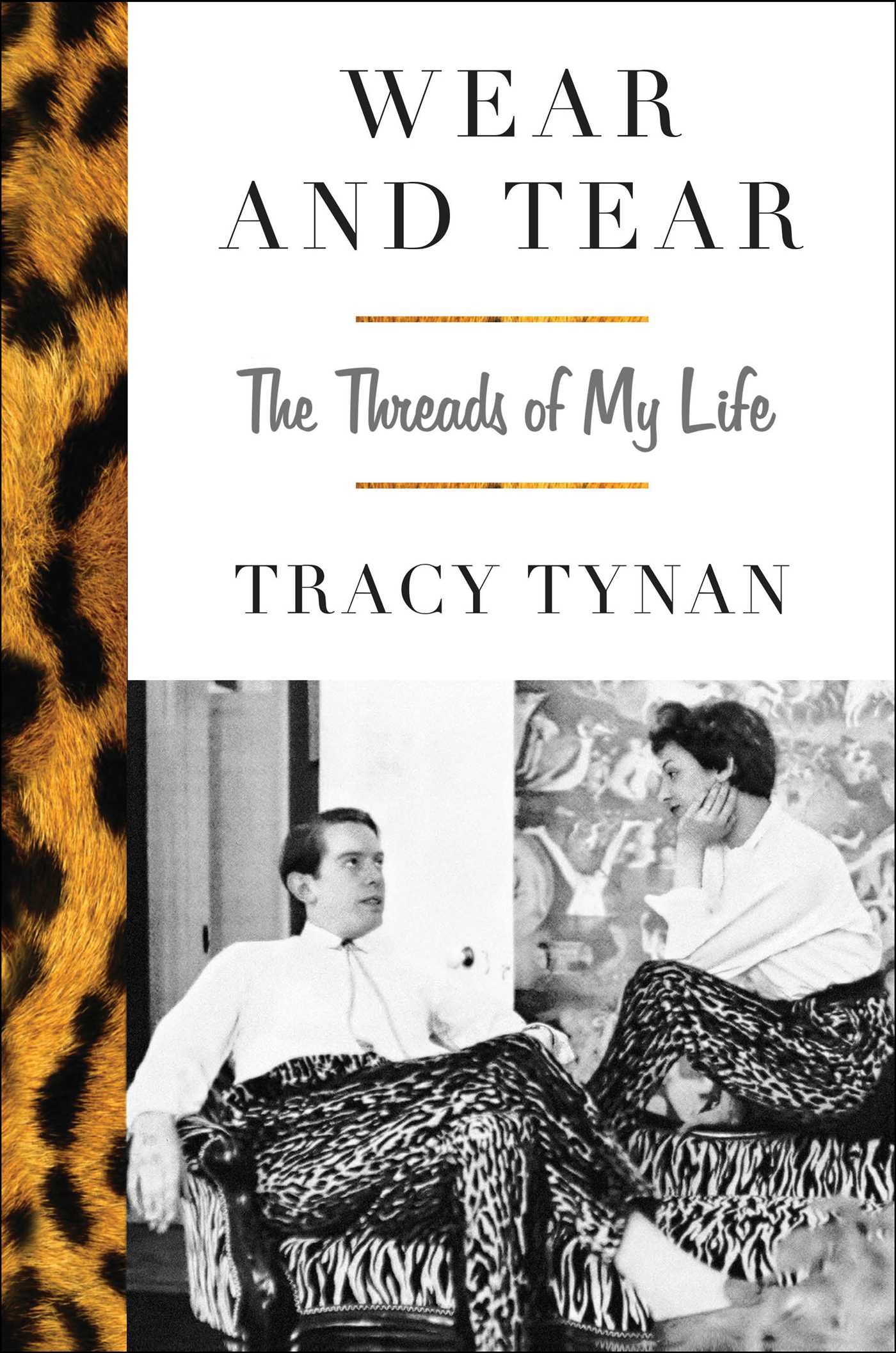Books |
Wear and Tear: The Threads of My Life
Tracy Tynan
By
Published: Jul 13, 2016
Category:
Fashion
IT’S NOT JUST ME: Here’s Frank Rich: “Tracy Tynan has written a memoir I cannot recommend highly enough. Tynan looks back at a childhood lived among bold-faced names in London — she was named after Tracy Lord, the character her family friend Katharine Hepburn played in “The Philadelphia Story” — but that was above all dominated by her mother and father — tempestuous, irresponsible, frequently inebriated, and staggeringly unqualified for parenthood. And yet they were brilliant and, at times, loving. How Tynan made her way through this minefield, not only to grow up to be a successful artist (a costume designer in the movies) but also to make a far happier family of her own, is a powerful story. In telling it, she gives her impossible parents their due, despite everything, and never loses her senses of perspective and humor.
The book’s chapters are organized around pieces of clothing that have been meaningful to Tynan at each stage of her life. I know close to zero about fashion, but I know about this kind of terrifying childhood — indeed I discovered the theater and Kenneth Tynan’s writing at a time when I was trying to escape from my own. Tracy Tynan’s account of how she survived and flourished despite all the heartaches and obstacles along the way, though set in rarefied circumstances, will speak to anyone who’s been there and gotten out alive.
—-
Tracy Tynan is the daughter of Scott and Zelda Fitzgerald. Really. Her father, Ken Tynan, was the bad boy of the English theatrical world. Her mother, Elaine Dundy, was a gifted novelist. But their real talent was for excess. They were loud. Drunk. Unfaithful. Whatever they touched, they broke. Scott and Zelda.
They did not break their only child, who should be a basket case and is, instead, a triumph of our species. I thought Tracy was surprisingly sane when I met her in 1973; as I got to know her story, my admiration increased. It is no surprise to me that all these years later she has written a book that presents itself, modestly, as a memoir organized around the clothes she wore along the path and, when she realized she could make a living using her fascination for clothes, the clothes she chose for the movies she worked on. “Memoir” and “Fashion” are too small a frame.
Books by children of celebrities are generally time bombs. The parents are acknowledged for their talent, then the kid slips the blade between their ribs. What’s remarkable about “Wear and Tear” is its compassion. Stories that would have sent you into therapy for the rest of your life are just stories for Tracy Tynan. She’s inherited the storytelling gift. And the survivor’s gift of knowing how to let go. Her book is a road map to Mental Health, dotted with outrageously good dish. [To buy the book from Amazon, click here. For the Kindle edition, click here.]
The book begins in childhood. Yellow underpants. Her mother’s fur coat. A string of pearls. Each memory is a pebble in a pond. The ripples go far. “Larry Olivier is coming for drinks.” A limo ride with Mary Martin. Cecil Beaton and Katharine Hepburn as godparents. Her father, standing in a window, screaming “I’m going to jump!” and her mother, naked, smoking, saying ‘Why don’t you?’” And a little girl, alone on her birthday, knowing it would never be different: “I don’t have a single memory of sitting down to dinner alone with my parents.” Or this, from her father, when she was a teenager: “It doesn’t matter if you’re not beautiful.”
What matters, it turns out, is pluck, a great personality, a strong work ethic. Which brings her to Los Angeles. Marriage to a director. Motherhood. And credits as a costume designer that she can be proud of: “The Big Easy,” “Great Balls of Fire” and many more.
And the clothes? Not by big name designers. Not from chic brands. “I have a forties dress that I wore on the first date with my husband and a plaid shirt a good friend gave me, and both of these I am sure I will keep long after they become threadbare. I have a beautiful brown velvet dress that I wore to a friend’s funeral, and I will probably never wear it again.”
The book ends with clothes. Again, not in a way you expect. Think of the end of a small independent movie. A woman, seen through a window, doing something useful and helpful. The camera pulls back. You see more. And when you leave the theater, you’re happy.
Forget that I know and adore Tracy Tynan. I can’t praise this book enough.


